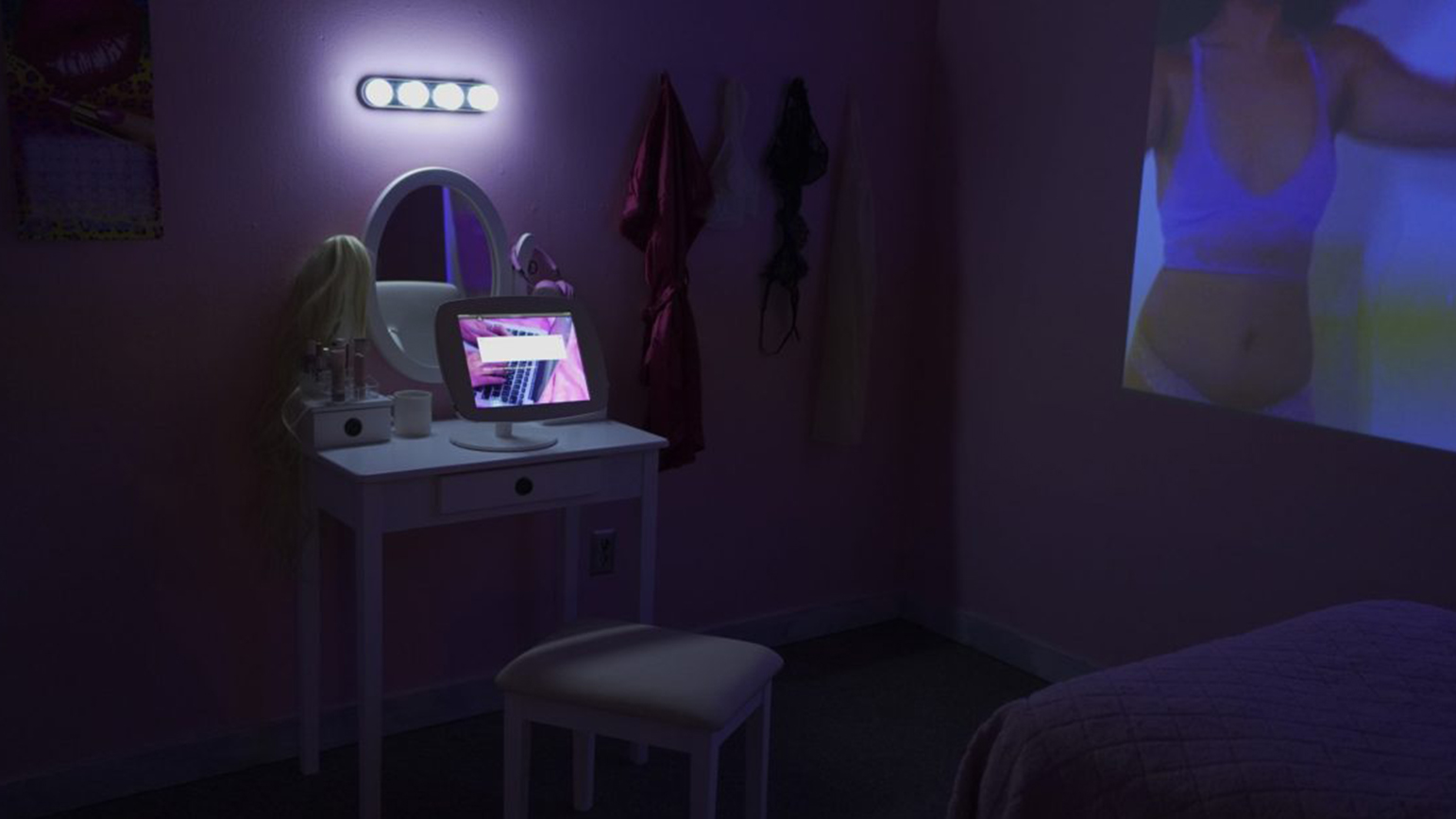
Lena Chen‘s work “OnlyBans,” created with Maggie Oates, is included in the exhibition “On Our Backs” at Ithaca College’s Handwerker Gallery, on view February 3 through March 11. The exhibition explores the many links between queerness, sex work, art and activism, and the ways in which they have led to radical transformation.
Queer and transgender sex workers have historically put their bodies on the line to expand notions of intimacy and pleasure; demand self-determination, equality, and care; and to widen representation for diverse communities and perspectives. While sex workers have stood firmly in the crosshairs of intersectional organizing, recognition and support for their labor has remained under realized. As artists, healers, educators, social justice leaders, joy makers, caretakers, and survivors, sex workers have more than earned their due.
“On Our Backs” presents first-person sex worker narratives alongside allied artists’ depictions, revealing a clear, queer kinship. LGBTQAI and sex worker histories are inextricably bound with Home, the Street, and Bars, Clubs, and Bathhouses. The artworks and artifacts within these sections of the exhibition illuminate spaces in which queer and trans sex workers labor, create, build community, agitate, fuck, collaborate, and express freedom. The exhibit also highlights LGBTQAI artists who harness pornography to grow queer visibility, explore desire, and challenge conventional social doctrines. “On Our Backs,” the lesbian erotic magazine from which this exhibition adopts its name, is a foundational example.
Displayed together, these artworks and interlaced histories offer a rich, yet incomplete portrait of LGBTQAI sex work culture. Sex workers are often omitted or misrepresented in art and archives due to race, gender, citizenship, and economic status, muting the impact of their invaluable contributions. Thrust from the edges of urban spaces by harassment, gentrification, and policing, sex workers are now under threat of being pushed from the “free” space of the internet via the passing of the 2018 SESTA/FOSTA bill, which conflates trafficking with sex work and opened the door to legal racist, transphobic, and misogynistic deplatforming. Sex workers have also been shut out from critical governmental support in response to the Covid-19 crisis and left to build their own avenues for mutual aid. ON OUR BACKS: The Revolutionary Art of Queer Sex Work honors the ongoing labor of LGBTQAI sex workers at the forefront of the fight for liberation and the ways in which art and community have helped sustain and celebrate them.




